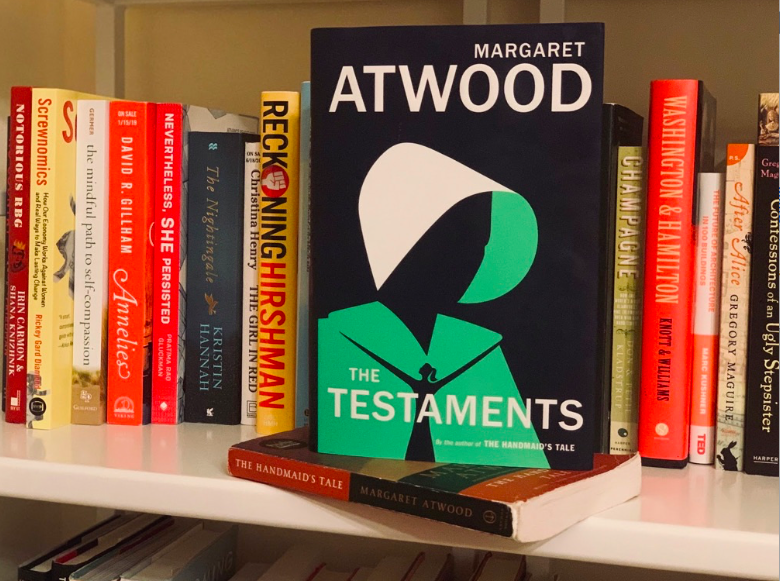Margaret Atwood’s The Testaments serves as a symbol of hope for a brighter future
Leia Gluckman staff writer
Peppered with reminders of the #MeToo movement and other plot points that hit far too close to home, The Testaments by Margaret Atwood is almost too frighteningly realistic to be viewed as a fantasy tale.
The novel is set in Gilead fifteen years post The Handmaid’s Tale (the predecessor to The Testaments) and unfolds through three different, yet connected women. One is Offred’s older daughter, Agnes Jemima, who was taken from Offred and her husband, Luke when the two attempted to escape the US and travel to Canada during the early stages of Gilead’s establishment. Agnes Jemima has since been raised by a Commander and his wife as a high-class member of Gilead society. Another is Offred’s second daughter, Nicole, who was brought to Canada as a child and has been raised under a different name. The third woman is Aunt Lydia, the strong and motivated enforcer of all of Gilead’s rules surrounding the roles of women in this dark, dystopian society.
Gilead, to me, is a symbol of misogyny, sexual exploitation, segregation (religious and racial), and gender inequality. It is an archetypal dystopia for any woman, child, member of the LGBTQ+ community, or member of a minority religious group.
In the eyes of an active and very vocal feminist, the “deplorable degree of corruption,” as Atwood writes, that exists in Gilead seems to be a warning that there is a dark future that lies ahead of the United States if it is to continue its attempt to suppress the voices of minorities and majority groups (ahem, women).
After being thoroughly engrossed in this literary masterpiece, the disturbance that might overcome a reader is to be expected. Gilead is a hard world in which to be submerged. The harsh messages that bleed from the pages are like daggers to one’s heart.
Atwood speaks of a world where “only boys could take that freedom; only they could swoop and soar; only they could be airborne,” implying that men are the only ones at liberty to live unjudged. A world where “even with grown women, four female witnesses are the equivalent of one male,” where the battle for gender equality is virtually unwinnable.
Atwood’s novel is not an attack on men or on corrupt leaders but rather a message to be sent to all who stand silent while watching others under attack. Most importantly, The Testaments provides any disturbed reader what they truly need: the promise of the downfall of Gilead.
Highlights would rate this book a 5/5.
Categories:
Margaret Atwood’s The Testaments serves as a symbol of hope for a brighter future
September 20, 2019
0
Donate to Highlights
$125
$1000
Contributed
Our Goal
Your donation will support the student journalists of Beverly Hills High School. Your contribution will allow us to purchase equipment and cover our annual website hosting costs.
More to Discover































